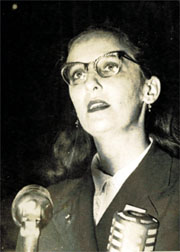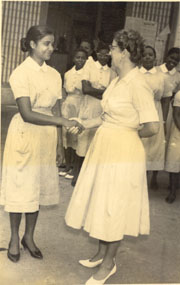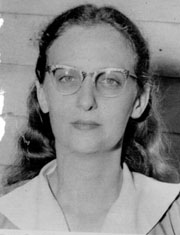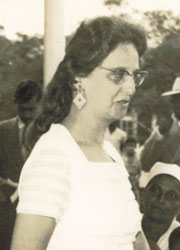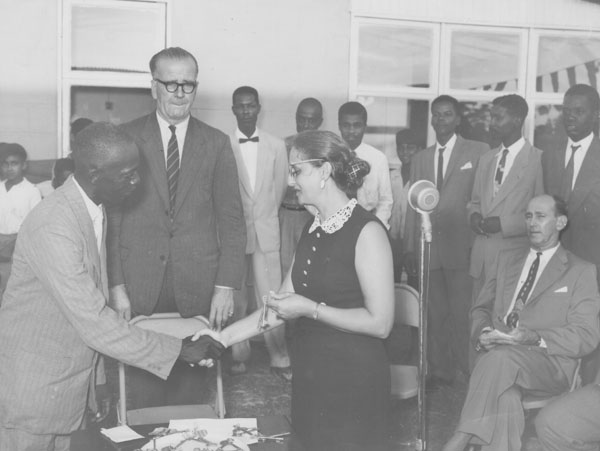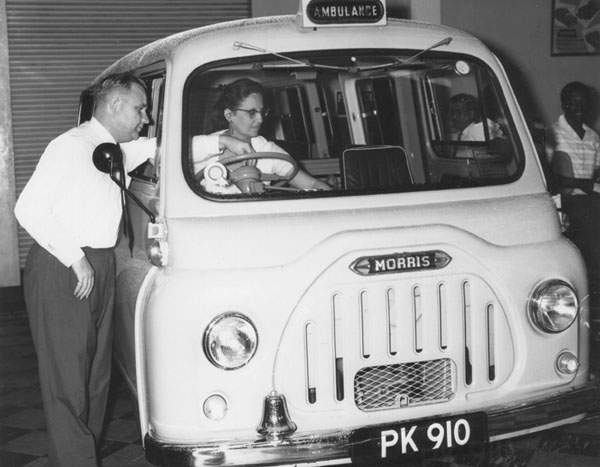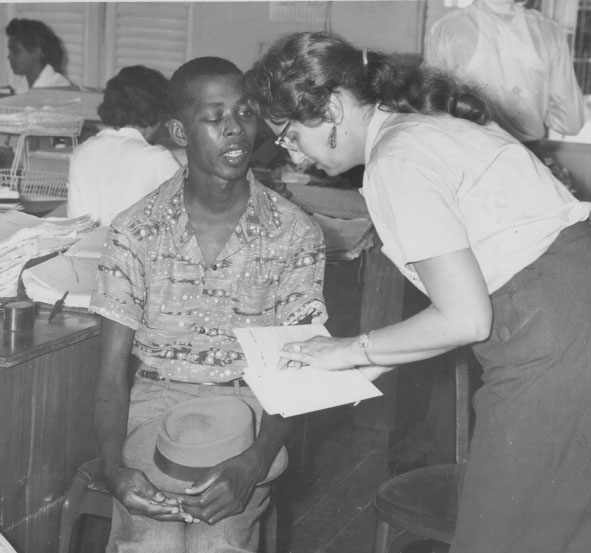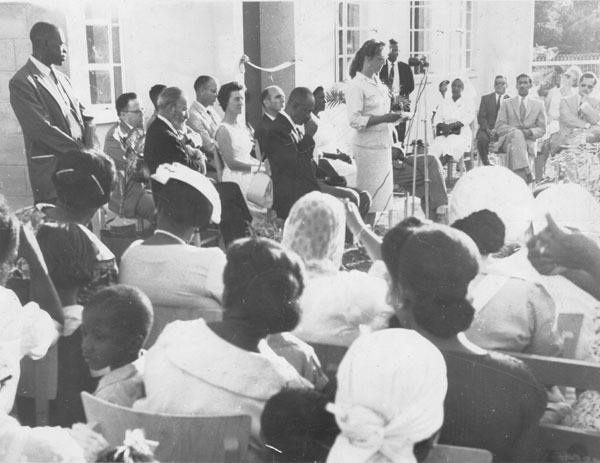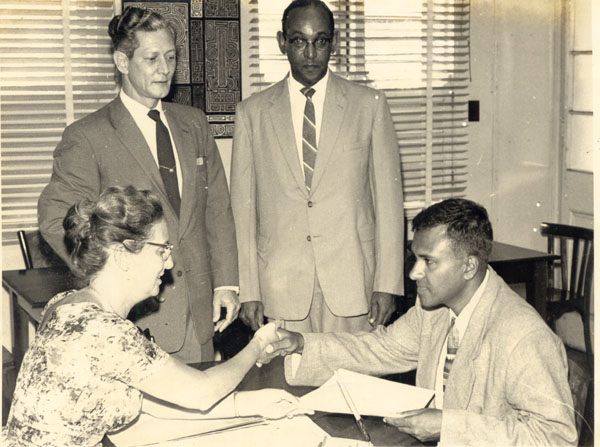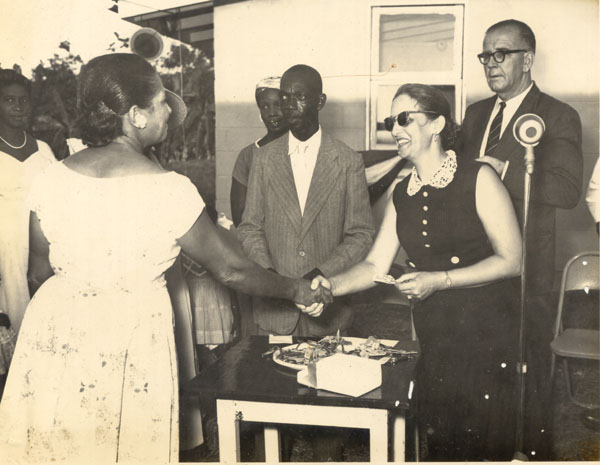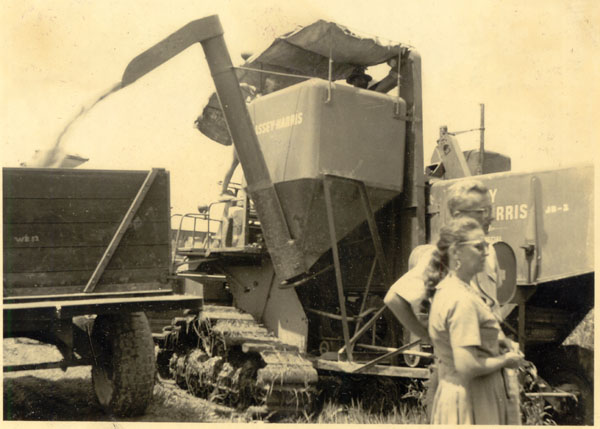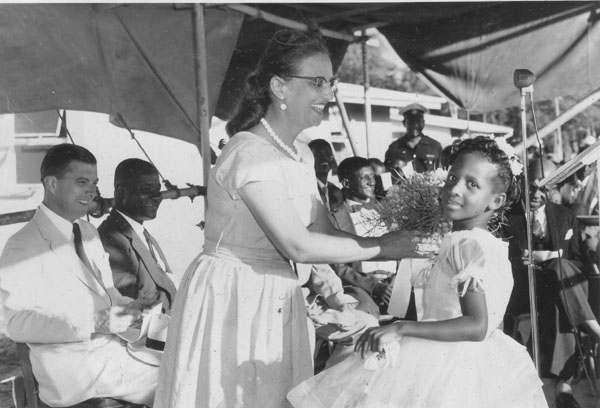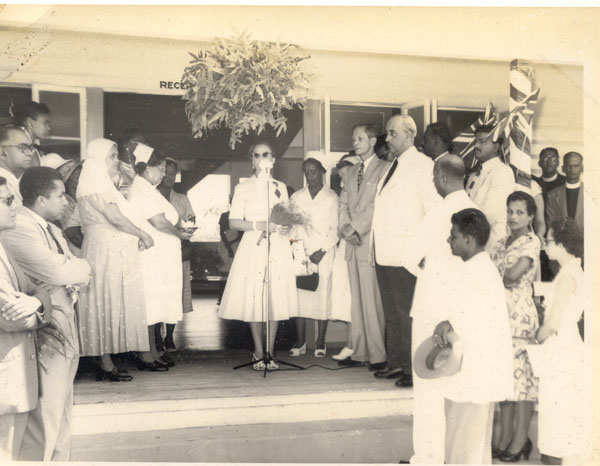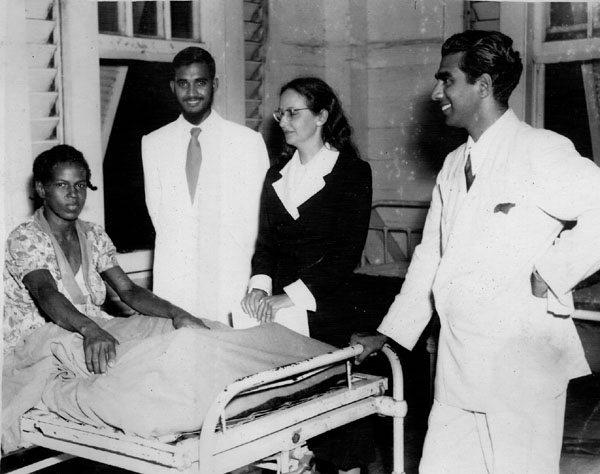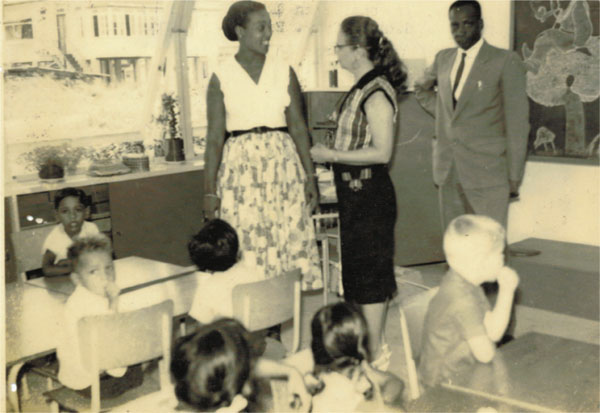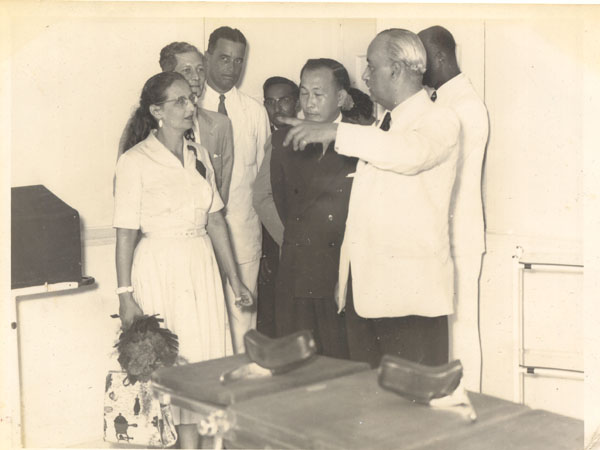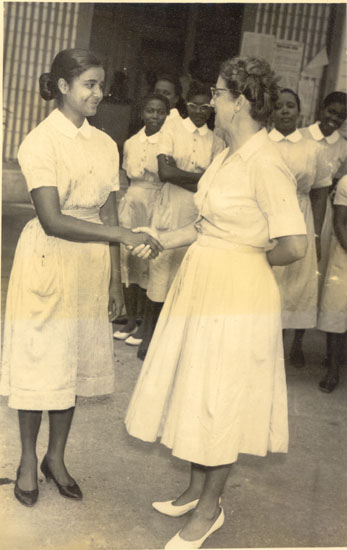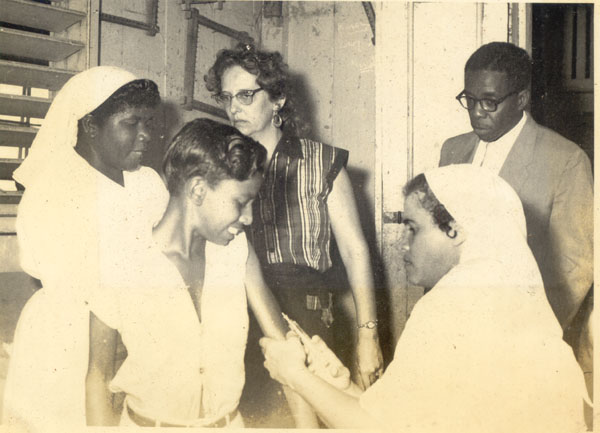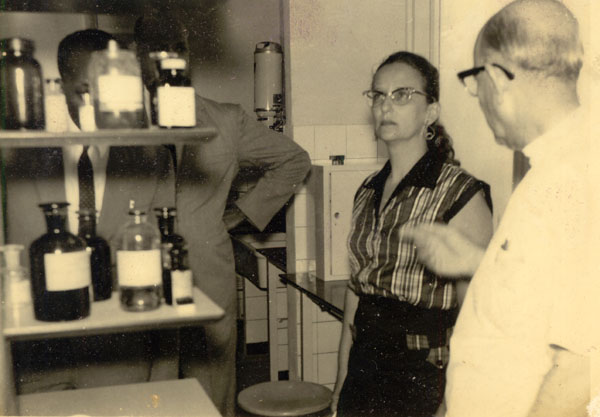Photo Gallery - 1950s
Janet Jagan - Minister of Labour, Health and Housing
1957-1961: Janet Jagan was returned by the constituency of Essequibo to the Legislature and was appointed Minister of Labour, Health and Housing.
Her feats are chronicled in various documents and the one which illustrates her passion and commitment is the reference by Dr. Jagan in his book the West on Trial when he referred to her role as a Minister of Labour Health and Housing in the period 1957-1961.
“It was under her leadership that malaria was practically wiped out, a mass campaign was launched to wipe out filarial in 1959 and children throughout the country were inoculated with anti-polio vaccine. An anti-typhoid campaign was also launched. New health centres were established in all parts of the country and it was under her guidance that pure water supplies were expanded throughout the countryside.
The logies in the sugar estates were coming down slowly. The Rent Restriction Ordinance that was in place for Georgetown was extended to cover the whole country. It was during this period that the working people saw an improvement in their living conditions. The Sugar Industry Labour Welfare Fund (SILWF) was forced to take action to alleviate the housing needs of the sugar workers.
New maternity and child welfare clinics were established in the riverain areas. Housing was expanded in towns and in the country side.
In the field of labour, by means of wages councils and advisory committees, wages and conditions for work were improved for workers in quarries, groceries, hardware stores, dry goods stores, drug stories, rural cinemas and the garment industry. Watchmen and shop clerks enjoyed better hours and working conditions. The Shops Ordinance passed in 1958 restricted the weekly hours of work of shop assistants from 47 to 40 hours.
Annual holidays with pay were prescribed for clerks, domestics and chauffeurs, and for workers in bakeries and in the timber, sawmill, garment, printing and stone crushing industries. Amendments to the Workmen’s Compensation Law gave protection for the first time to domestic servants and increased benefits and protection to all workers.”

